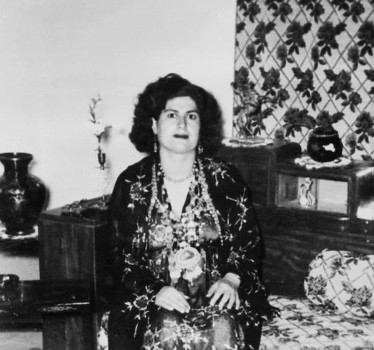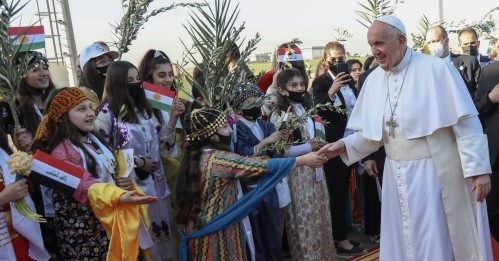Bakhtiyar Dargali was born in 1960 in the village of Dargala, in the Balakayati/Rawanduz area of the Kurdistan Region. Known for its breathtaking beauty, Dargala frequently housed peshmerga fighters and its residents were constantly dreaming of revolution. His family was also woven into the fabric of the Kurdistan liberation movement, with his father, grandfather and uncles fought alongside the iconic leader General Mustafa Barzani.
From his earliest moments, Dargali thus witnessed the Kurdish struggle, and a deep longing for a free Kurdistan profoundly shaped his life. Even his education began in this revolutionary environment. This background fueled Dargali’s passion to create better conditions for workers that can provide healthier, more secure livelihoods for them and their families.
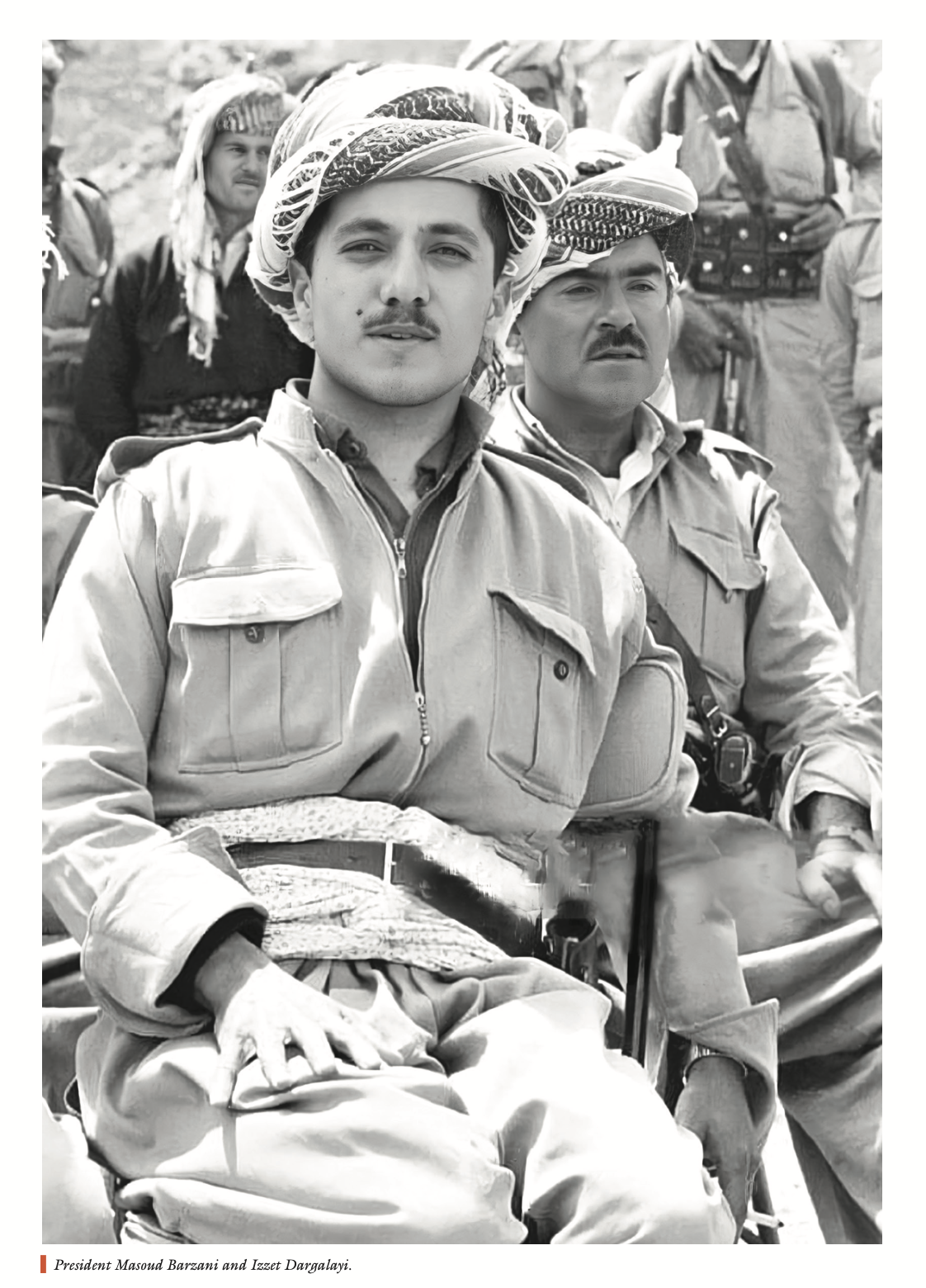
After completing his studies and working various jobs, Dargali co-founded a company that provides consultation services for businesses and institutions to design optimal working environments.
“My experiences instilled in me a deep appreciation for a fostering a favorable living and work environment,” he explains. “That’s why I am so meticulous about improving it.”
Dargali’s company, ESEI, boasts high-quality equipment and a dedication to excellence in their field. While financial success is a factor, the company’s core mission is to create positive and comfortable work environments. They view themselves as environmental stewards as well, translating their love for the Kurdistan Region’s rich nature into their work.
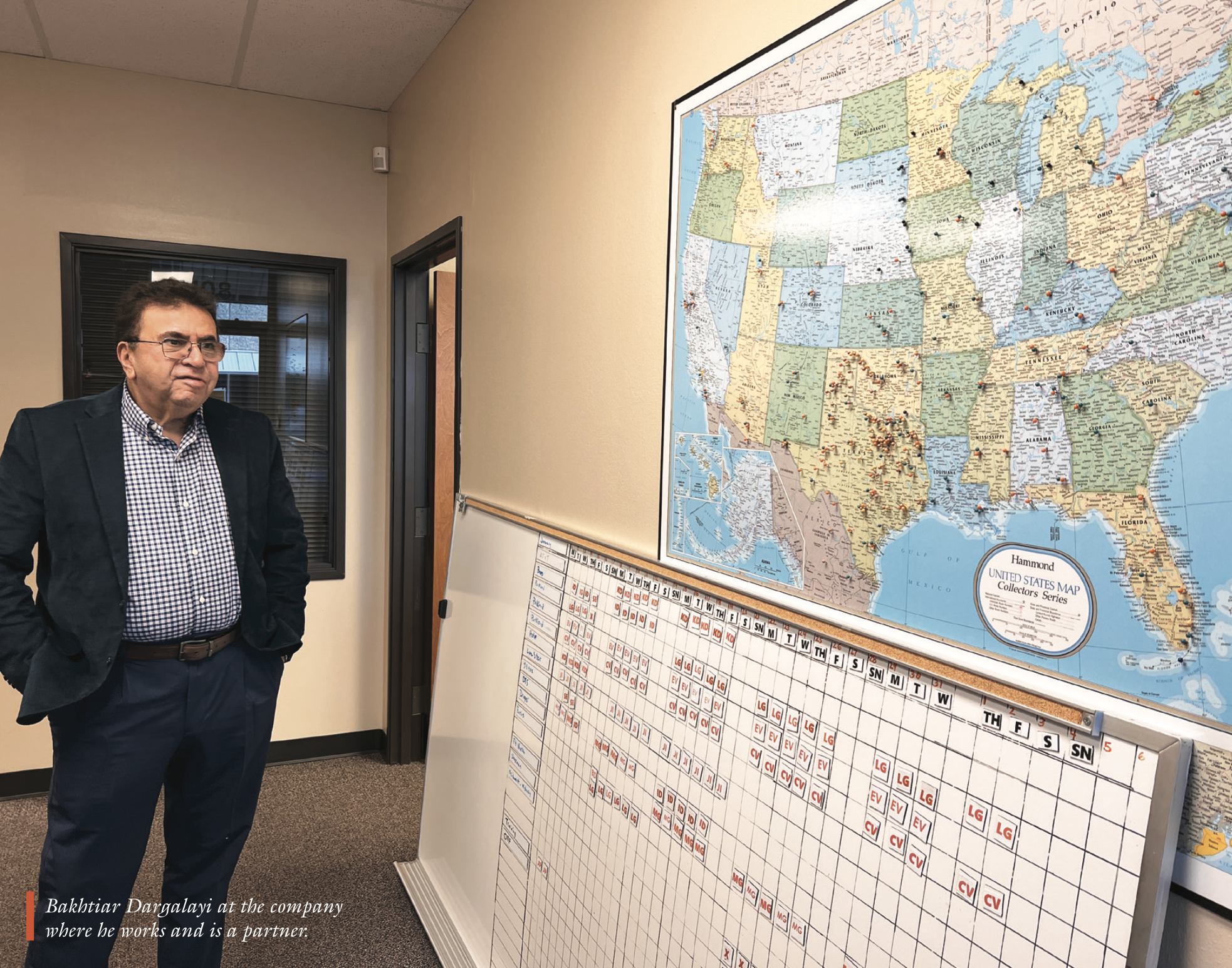
Formation in the United States
Dargali’s determination first led him to pursue an engineering degree from the University of Tennessee. His brother, Kamaran, also flourished, graduating with a degree in management from the same university.
“The United States holds a special place in my heart, just as the Kurdistan Region does,” Dargali declares, his voice filled with pride. He speaks of the opportunity the country offered him after the hardships he endured. The United States became the stage for his success story, granting him a comfortable and fulfilling life.
Dargali’s path to the United States intertwined with the legacy of General Barzani. Political upheaval forced his family to seek refuge in Iran during the 1970s, a period marked by immense longing and the fading hope for a Kurdish revolution. Thanks to Barzani’s efforts, Dargali and his brother received the chance to study and build a new life in the United States through a refugee and asylum program. They never forgot the words of their parents and Barzani, urging them to become ambassadors for their people’s cause. This responsibility has fueled Dargali’s lifelong commitment to defending his homeland’s aspirations.
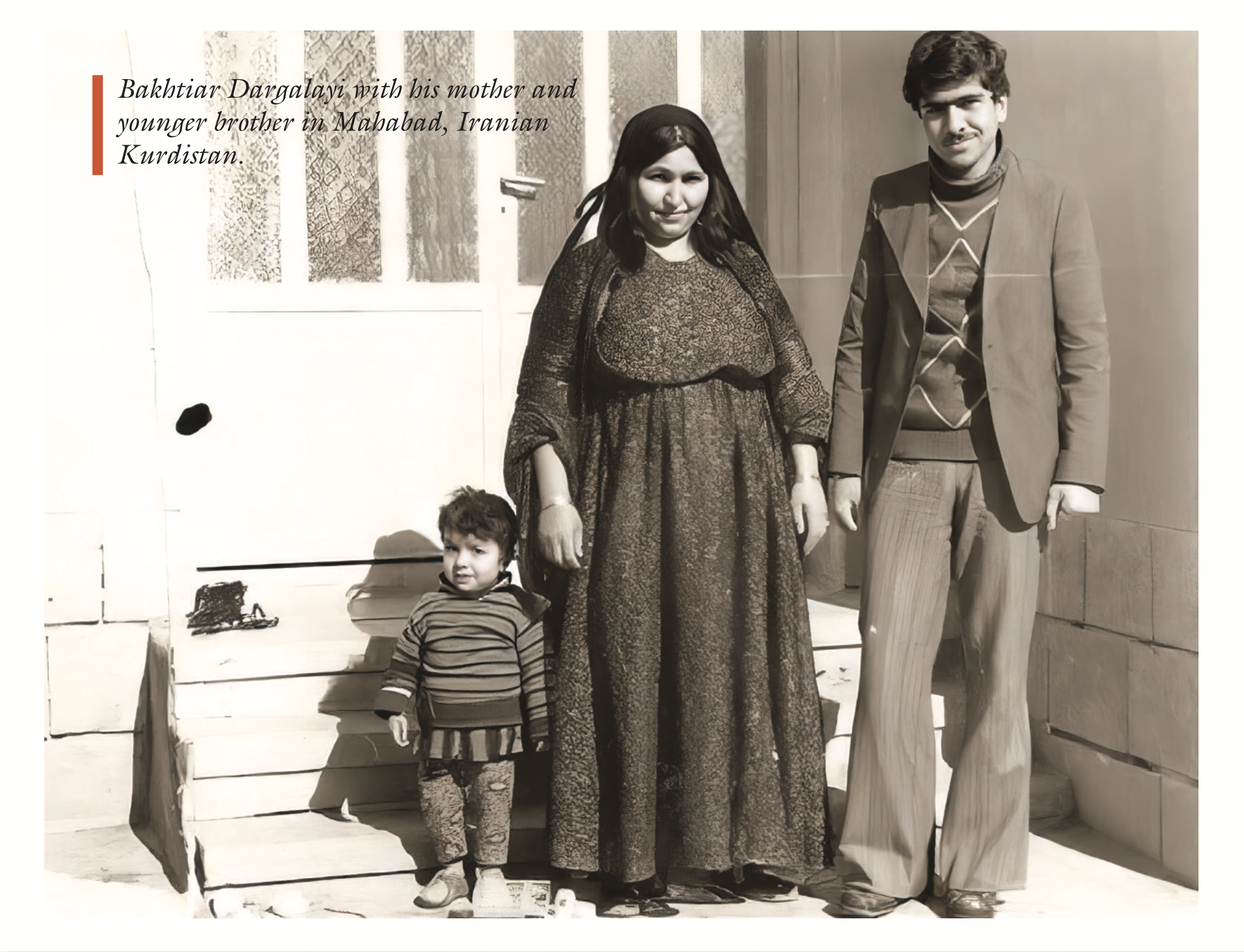
Years later, fate brought Dargali face-to-face with his ailing leader when Barzani sought cancer treatment in the United States. This reunion was bittersweet, marked by both joy and grief. It was also during this visit that Dargali was reunited with his father, Ezzat Sulaiman Dargali, who was summoned by the Iraqi President to deliver messages to Mustafa Barzani. The Iraqi regime wanted to calm the revolt in Kurdistan with Barzani’s help, but Barzani refused Iraq’s mischievous overtures and implored them to stop its Arabization policy and destruction of Kurdistan’s countryside.
In the United States, Dargali has long been a vocal advocate for Kurdish rights, proudly participating in marches and demonstrations. “We traveled across multiple states to support Kurdistan,” he recounts. “Washington, D.C. and New York City saw us rallying for our people’s demands and seeking international aid.”
The 2003 liberation of Iraq by the United States offered another opportunity for Dargali to express his solidarity. He actively participated in the 2005 elections, even traveling a grueling 24 hours by bus to register and vote.
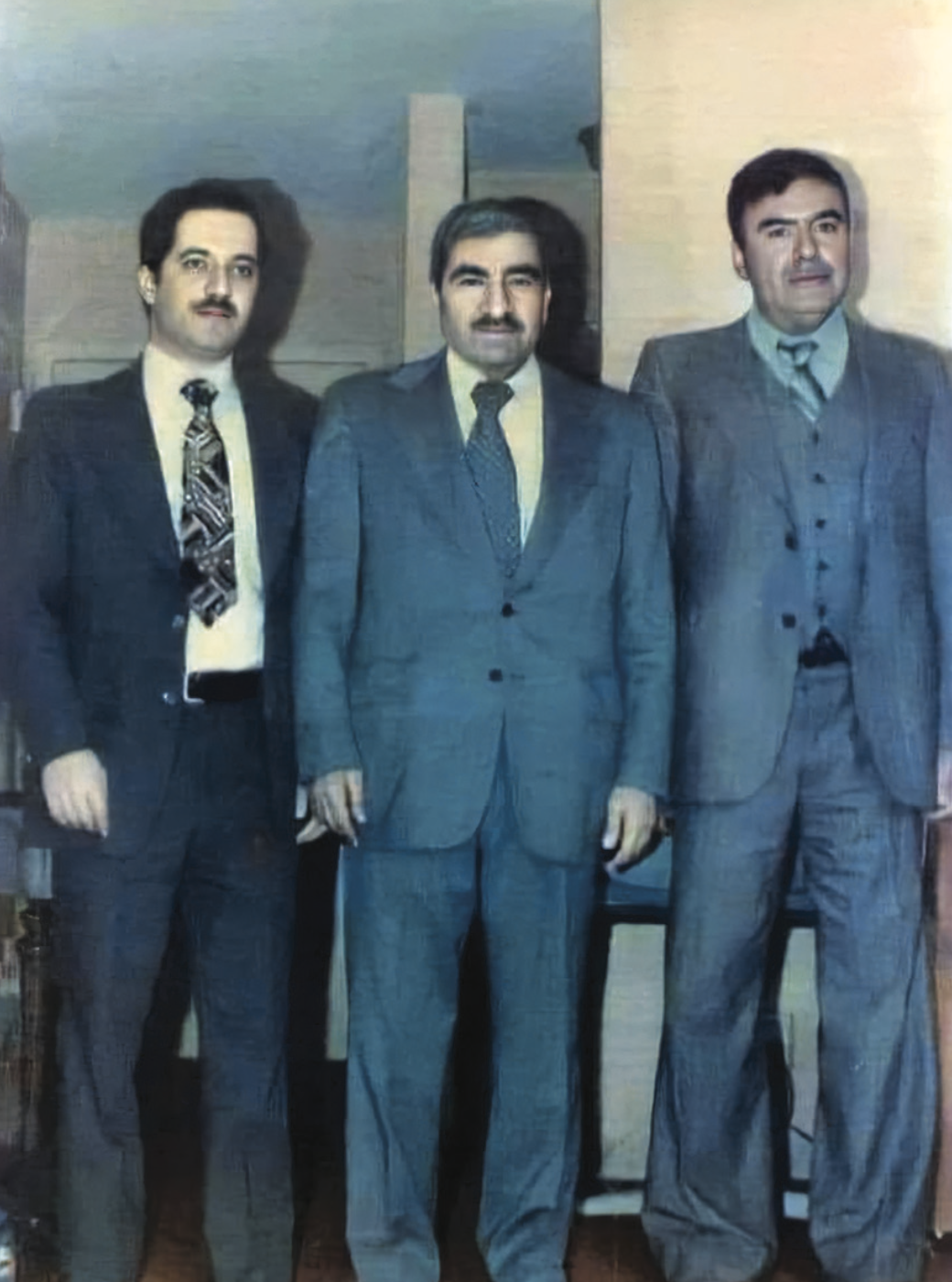
Lifelong ambassador for his people’s cause
Following the Kurdish uprising in 1991, Dargali returned to the Kurdistan Region several times, reaffirming his connection to his homeland. He married a Kurdish woman and together they built a beautiful family.
The 2017 Kurdistan Region independence referendum marked a particularly joyous chapter in Dargali’s life. He visited Kurdistan frequently during this period, often meeting with then Kurdistan Regional Government President Masoud Barzani, the top Kurdish leader and son of Mustafa Barzani.
“President Barzani is a leader unlike any other in Kurdistan’s history,” Dargali says with admiration. “He would make any sacrifice to realize his people’s dreams. Unfortunately, global politics trumped the Kurdish people’s aspirations once again.”
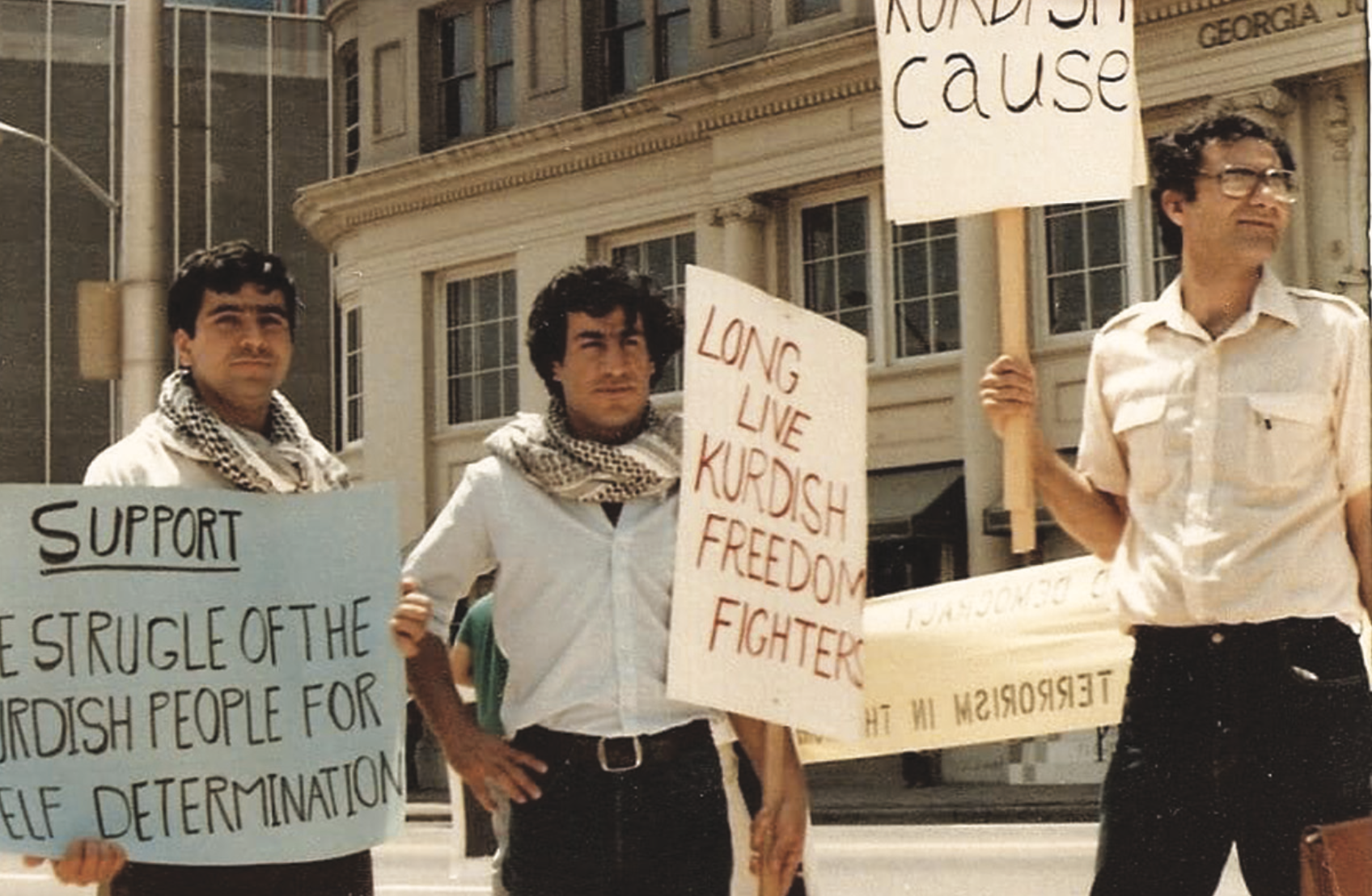
Despite the vast physical distance and time difference separating him from the Kurdistan Region, Dargali remains deeply connected to his homeland. Social media allows him to stay updated on Kurdish life, sharing news and developments with his community.
Dargali vividly recalls an encounter with U.S. Senator (Texas) Ted Cruz. “At a Kurdish cultural event, I approached the senator in our traditional attire,” he relates. “I urged him to remember the Kurds, the United States’ loyal allies in the region. We are grateful to the United States for liberating us from Saddam Hussein, but continued U.S.-Kurdistan friendship is essential.”
Senator Cruz expressed his appreciation for Dargali’s advocacy during their encounter.
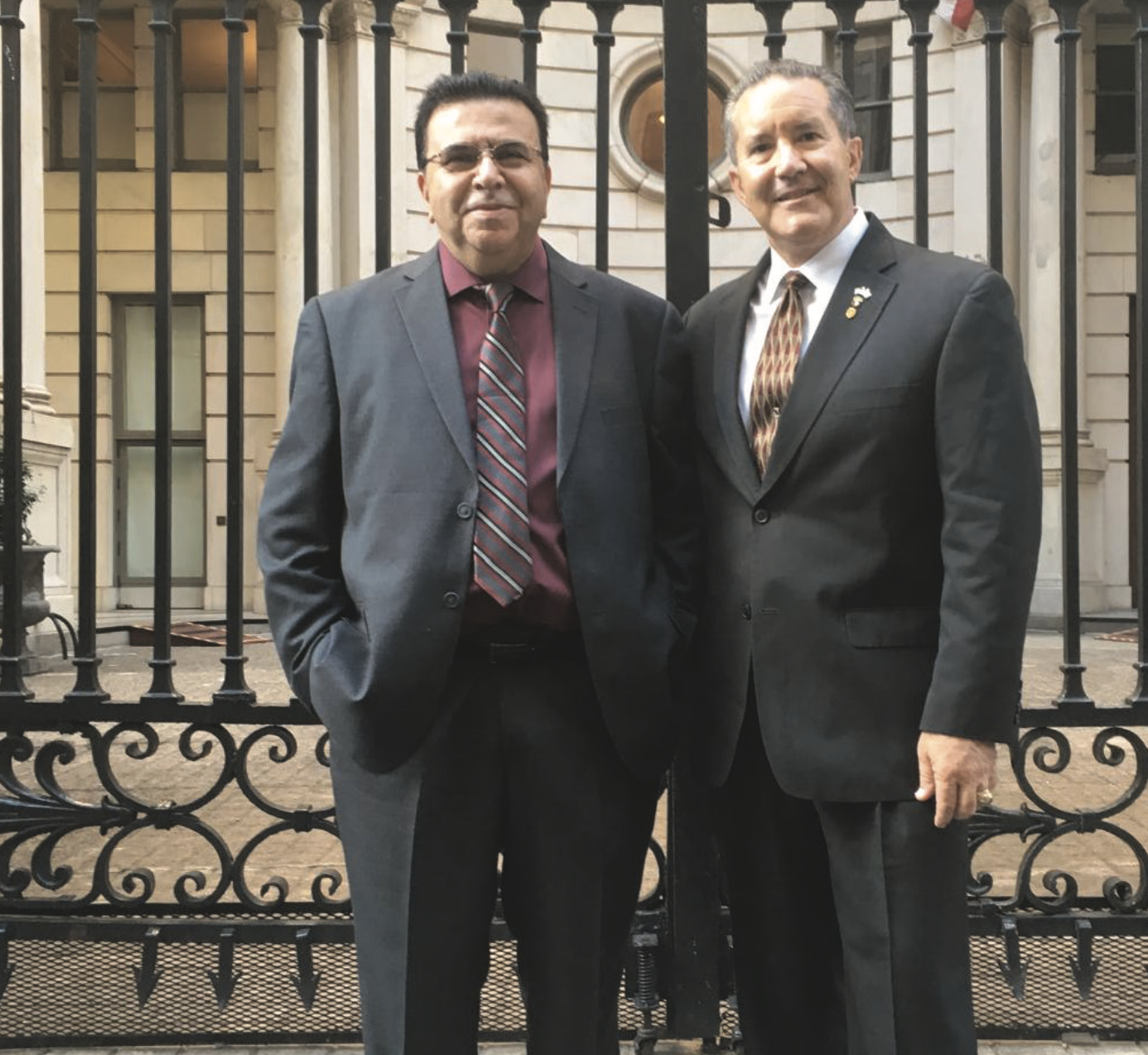
Dargali’s office proudly displays a well-worn letter that his father sent in 1976. The letter, a powerful symbol of his father’s unwavering support, reads: “My sons, as a devoted father, I urge you to excel in everything you do. Never neglect your education. If you work during the day, dedicate nights to studying, and vice versa. Persistence in learning is key. Through education, you can serve your community effectively.”
These words resonate deeply with Dargali. “Fulfilling my father’s wish for me to become a Kurdish ambassador to the United States has been my lifelong mission,” he declares with conviction. “I will relentlessly defend the rights of the Kurdish people, serving as their unwavering advocate until they achieve their aspirations for a free and independent Kurdistan.”
Dargali’s unwavering dedication to his homeland, coupled with his success in the United States, exemplifies the enduring spirit of the Kurdish people. Through his advocacy and unwavering commitment, he continues to fight for the Kurdish cause, ensuring that the world remembers the Kurdish struggle for self-determination.

Shamal Abdulla is a journalist with 18 years of experience in the field. He has held a number of prestigious positions, including news director at Kurdistan 24 and the editor-in-chief of BasNews.
